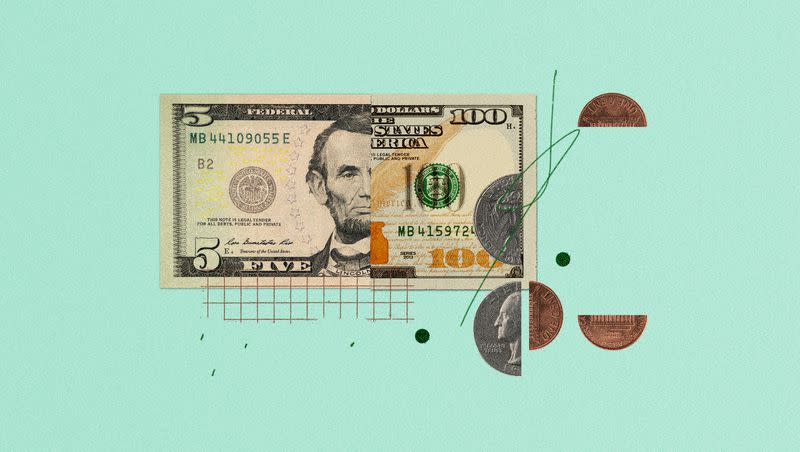Opinion: Feeling poor? Wealth comparison may be to blame

My husband and I sweated through the summer of 2022 in a little red Honda Fit with no AC. We managed it with the help of Otter Pops — hundreds of them — as a tastier but sadly less effective method of cooling down on the go. In December, we were finally able to purchase a new car — complete with AC.
Someone might see me driving a brand-new car and make an assumption about my level of wealth compared to theirs. They don’t see the summer of sweating; they don’t see the loan payments we make every month. And they don’t see me comparing myself to someone else who is able to afford a home.
So while I may feel poor when I compare myself to the homeowners my age or that friend who seems to be on a tropical vacation every other month, that’s actually the root of the problem — comparison.
In a study published in the Journal of Personality and Social Psychology in 2016, the researchers state that absolute income is not always the main driver of life satisfaction; instead, it is often relative income, or income in comparison to others. The study mentions previous research that revealed people would rather have a salary of $50,000 if others have $25,000 than a salary of $100,000 if others have $200,000. To an extent, we care about our salary amounts — but our larger concern is whether it’s more than those around us.
Another study from 2022 published in Frontiers in Psychology finds that upward wealth comparison has a stronger effect than downward wealth comparison. In other words, our feelings of jealousy at those who have more than us are stronger than our feelings of pride at what we have. The researchers state that this is because we focus more on our losses than our gains.
Related
So if you’re feeling poor right now when you look around at what others have, you may be seeing a highlight reel of your losses magnified through comparison.
But the fact of the matter is that comparing what we have with what we think someone else has is like comparing our lived reality with their social media life. On social media, a breeding ground for wealth comparison, we are constantly shown a partial picture, the best of who knows how many photos taken that day. The most interesting tidbits extracted from weeks or months of someone’s life. Social media amplifies feelings of wealth loss because we see a feed full of vacations, fancy dinners and expensive hobbies instead of the average American folding laundry on the other side of the screen.
So rather than dedicate our lives to get-rich-quick schemes in a mad dash to keep up with that neighbor who just booked their third cruise this year, how can we feel better about our financial lot and escape from the comparison spiral?
Three things.
First, we can acknowledge that our spending doesn’t need to compare to our neighbor’s because we aren’t funding their financial goals. Setting our own achievable financial goals can help us feel motivated and realize that our aim is not to have more money than everyone else but to have enough money to meet our needs and goals.
Second, we can recognize that spending is not an accurate picture of wealth stability. Instead of looking at what others have, focus on saving and investing money. The average savings for Americans under age 35 is $11,250, and the median savings is $3,240, according to Forbes. Investing in 401Ks and IRAs may seem inconsequential right now, but the earlier you start, the more time your money has to grow, setting you up better for retirement.
Third, we can remind ourselves that the influencer we see on social media with a closet full of linen statement pieces for their infant is not living the life of the average American. If we want to feel better about what we have, the research shows that surrounding ourselves with people closer to our income level helps.
Related
Our motivations to make money should stem from our own financial goals, not from an insatiable need to match the spending style of someone else. While people will continue to debate how much happiness money can buy, comparison is almost guaranteed to leave us feeling poor, no matter how much money we make. So instead, stop looking at your neighbor’s wealth and start enjoying your own.

